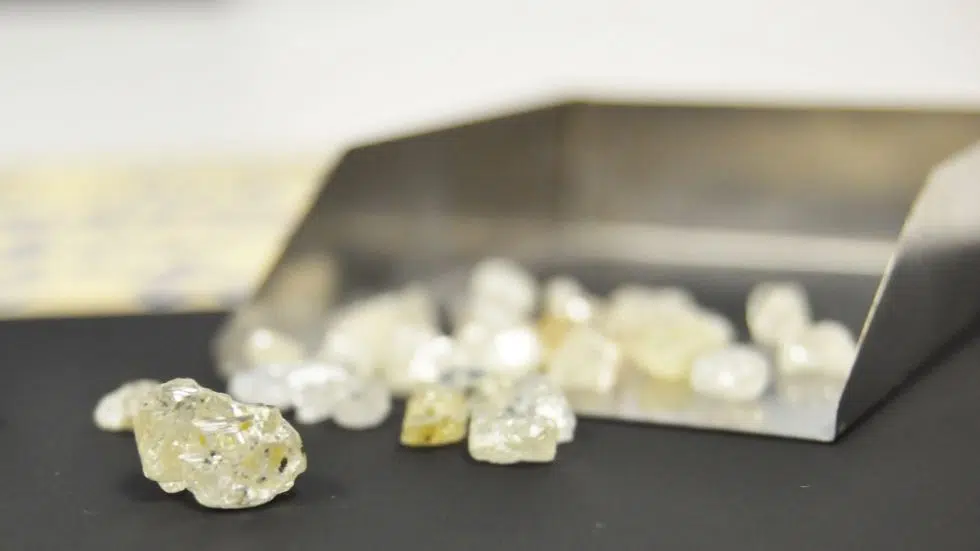
PA’s Embee Diamonds partners with Canadian mining company
Embee Diamonds in Prince Albert has partnered with African Diamonds for Development (ADFD) to bring precious stones to the international market in an ethical way.
ADFD, a Calgary-based, is several weeks away from starting production in the Kasai-Oriental province of the Democratic Republic of the Congo (DRC). Once production begins, rough stones will be brought to Prince Albert where they will be cut and polished.
There are several reasons why ADFD is bringing their uncut diamonds to Prince Albert, said president and chief operating officer Mario Molina, including an expandable facility and a desire to keep production in Canada.
However, the big draw is Michael Botha, Embee Diamond’s master diamond cutter, “Michael’s expert cutting and experience within the industry, for us, made it a no-brainer,” said Molina.


